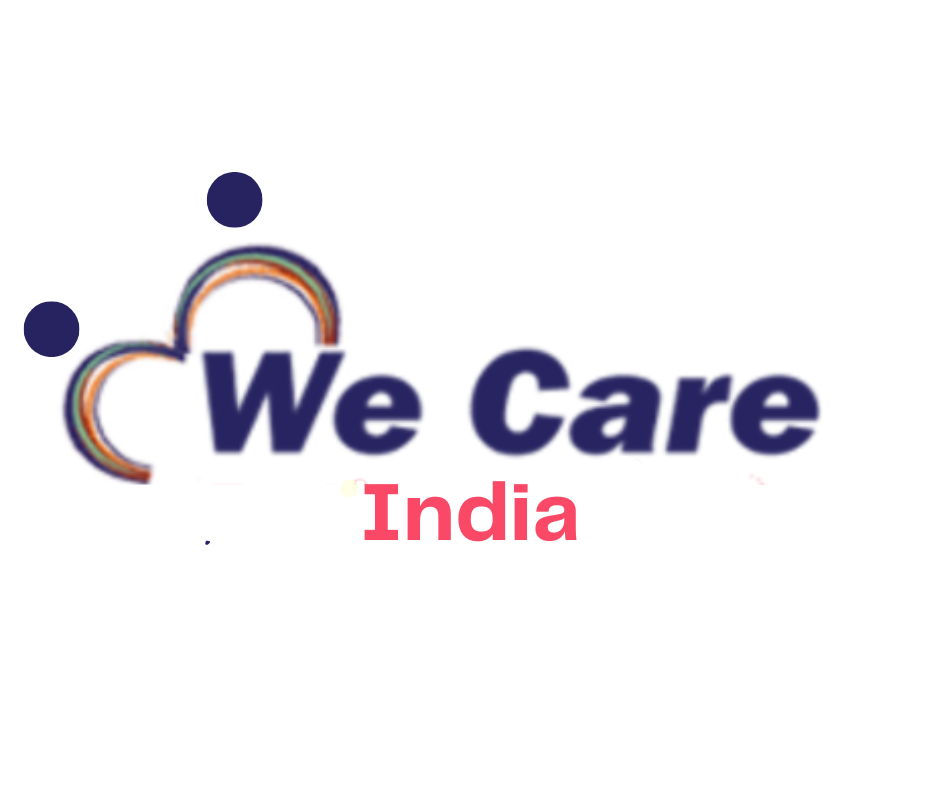Nasal Cancer Treatment and cost in India – Comprehensive Care and Innovative Approaches
Nasal Cancer In India, these diseases are not found in some states. Like hill states of northeast India, particularly Nagaland, Manipur, and Mizoram. But there is a team of specialists in the hospitals and clinics, so they can treat the patients if there is a problem. In India, there are teams of healthcare providers, who take care of patients. There is a team of experienced specialists have 10+ years of experience. Several cases of Nasal Cancer treatment are treated by specialists, with a high success rate. So, if you are facing a problem with your nose, you can reach the best clinic or hospital for treatment. So, they provide you a better facilities management.


Free Doctor Opinion

Personalized care with a warm interaction with the patient
- Achieving outstanding success rates through our dedicated care approach.
- Equipped with the latest technology to ensure optimal treatment outcomes.
- Our expert team provides exceptional healthcare with experience.
- Offering 24/7 assistance for your health needs and concerns.
- Providing quality treatment at reasonable costs for every patient.
- Contact us Email ID:[email protected]
- Call us: +91 9029304141
Understand About Nasal Cancer
Nasal Cancer is not a cancer disease, it is found in rare cases of cancer in Nasal Treatment. It affects the nasal cavity, which is the space behind your nose. It also affects your cheekbones and forehead. It is different from cancer of the area, where the nose and throat are connected. It occurs when malignant cells form in the tissues of the nasal cavity or paranasal sinuses. There is the space behind the nose, and the paranasal sinuses are the air-filled cavities in the skull around the nose. Treatment depends on the situation, but the surgery removes the cancer. It includes radiation therapy and chemotherapy.
If you suffer from nasal cancer, you get so many symptoms in your body that are nosebleeds, sinus problems, numbness in the face, headaches, jaw pain, loose teeth, etc. It affects your health. In Nasal Cancer, you have to avoid tobacco and smoking. You know that more than 50% of individuals are eating tobacco and smoking, which is too harmful to health conditions. It affects those individuals who are between the ages of 45 to 85. It was affected by certain reasons. So, if you are searching for the best nasal cancer treatment clinic in India, we consider the best clinic is “We Care India”. It provides you with are better management facility. They used advanced machinery and technology for the treatment.
You know that every cancer has stages, in nasal cancer also has the stages. All the stages are different in form. It determined how far a nasal cancer has spread. There are four stages of nasal cancer treatment. Let’s go into detail.
Stage 1:- In this, the nasal tumor is still contained inside your nasal cavity.
Stage 2:- In stage 2, the cancer has spread to other parts of your nasal cavity.
Stage 3:- In Stage 3, it has spread into your sinus bones or your eye socket. It also spreads to nearby lymph nodes.
Stage 4:- In the last stage, the cancer is spread deeper into the surrounding structures, such as the brain or other parts of your neck and skull. It also spreads to distant areas of your body. There are fewer chances to live alive.
Treatment of Nasal Cancer
You are well known about Nasal Cancer, now here you know the treatment of nasal cancer. The treatment of nasal cancer depends on several factors such as medical history, checking whether nose cancer is cancerous, and your personal preferences. So, in cancerous diseases, the surgeons used the treatments of surgery in combination with radiation therapy. Surgery, radiation therapy, and chemotherapy are used. So, let’s know about it in detail.
Surgery
In Surgery, this is main goal of surgery is to remove cancer from the part of the body. So, in nasal cancer, surgery treatments are used. If cancer has spread to nearby lymph nodes, a surgeon will also remove as well. In Some cases is found that the neurosurgeons are also treated. Neurosurgeons are those who treat patients who face problems with ear, nose, and throat specialists. It depends on your health situation.
Radiation Therapy
In Nasal Cancer, there is used of Radiation Therapy for the treatment. It stand-alone treatment or in combination with surgery. You might receive radiation therapy before surgery to shrink the cancer or tumor. After the surgery, you will undergo radiation therapy to kill any remaining cancer cells. If the patient does not want to undergo the surgery, they can receive radiation therapy without the surgery.
Chemotherapy
Chemotherapy is the use of medicines that kill cancer cells. It may be given through a vein or pill form. In this, it is not used often as surgery or radiation therapy in the treatment. But in moslty cases, the doctor advice to undergo chemotherapy or chemoradiation. In this, there is a combination of chemotherapy and radiation therapy.
So, these are the treatments done by our surgeon. There is mainly used of Radiation and chemotherapy, it best for treatment. In some cases, there is also a need for Surgery, it depends on the situation.
Symptoms and Causes: Nasal Cancer in India
Individuals do not notice the symptoms and causes, which is a big fact. In Nasal cancer, you get so many symptoms and causes in your body which has a bad effect on your health conditions. So, now let’s know it in detail.
The Most Common Symptoms of Nasal Cancer are the following ways:-
- The nose gets blocked does not go away and usually only affects 1 side.
- There is nose bleeding and a decrease in sense of smell and taste.
- The mucus starts draining into the back of your nose and throat, and it runs from your nose, in the form of blood.
- You get a pain or numbness in the face, and in the upper check, it does not go away easily.
- There is a partial loss of vision or double vision.
- The eye gets a bulging eye and watering eye, that does not go away.
- You get pain and pressure in one ear.
Causes of Nasal Cancer
Causes of Nasal Cancer, that most individuals do not know about. It occurs when the genes that control growth become damaged or abnormal. Developing nose cancer poses a risk to your health. Eating tobacco and smoking, which is very harmful to health. It affects the part of the nose and mouth. The leather dust, chemicals, and substances including glue, and radium solvents are also factors of causes.
So, these are the symptoms and causes of nasal cancer, and you are aware of it. If you are facing these symptoms reach the nearest clinic, and stop using tobacco and smoke.
Cost of Nasal Cancer In India
In Every treatment, there is a need for cost. It plays an important role in any treatment, Before any treatment, individuals’ minds think about the Cost. The Cost of Nasal Cancer depends on several factors such as location, types of Nasal cancer treatments, hospitals, and clinics, specialists’ experience, techniques, etc. The cost of Nasal Polyps is affordable and reasonable, everyone can easily afford it. It creates difficulties for the low-income person, but they can also afford it. The Cost of Nasal Cancer In India starts at around INR 2,00,000.
The cost also depends on the type of Nasal cancer treatment. Different types of treatment have different amounts. The cost can vary depending on the hospital, the patient’s health, and the type of treatment which you require. For nasal cancer treatment, and performed surgery, the cost is around INR INR 8,000 to 9,000, Lab tests cost up to INR 100,000, Biopsy costs range from INR 25,000 to 35,000, and Endoscopy cost is INR 10,000 to 50,000. In post-treatment expenses, include medicines, room rent, homecare services, and complication management.
The success rate of Nasal Cancer in India “We Care India’.
We Care India is the best clinic for Nasal Cancer In India. There is a highly qualified team of specialists and experienced. They have experience of 10+ years. We Care India has a high success rate in Neck pain surgery is above 85%. There is a medical team who will take care of you and provide better management facilities. In India, there are lots of hospitals and clinics, that provide facilities but in some hospitals and clinics, the success rate is low. Individuals are searching for the best clinics, providing the best management facilities with a high success rate. But “We Care India” in Nasal Cancer Treatment is the best clinic with a high success rate. They used the best technology for the treatment, in nasal cancer they used treatments such as surgery, radiation therapy, and Chemotherapy.
Why choose We Care India for Nasal Cancer In India?
We Care India is the best medical service provider in India, and we take care of the patients and the healthcare provider team. We have a medical team that works 24*7 to handle the medical cases. So feel free to contact us anytime as our friendly medical staff will help you with your medical enquiry. Pour highly qualified doctors work 6 days a week to diagnose your disease and assist you with one of the best treatments.
Moreover, our opening hours vary on different days. From Monday to Friday are different, Saturday timing is different and Sunday timing is different. Our trusted medical team offers personalized care. With the help of exceptional service, we ensure successful treatment. Our medical service provider center is considered the top healthcare company that offers the best medications, treatment, surgical processes, etc.
This center comes with several treatments or surgeries such as cosmetic surgery, brain and spine, and cancer treatment. So this medical center is to make your future bright like a moon. With 25 years of experience in the medical sector, we offer top-notch quality performance to patients struggling with any type of disease. Our center has a specialty in Nasal Cancer In India. We offer smooth nasal cancer In India.
Last Word
In this content, you have learned about Nasal Cancer in India, which is a cancerous and non-cancerous disease. In this, you have learned about Nasal cancer, which is an abnormal growth that starts in your nasal cavity. It is located just behind the nose. There are treatments used surgery, radiation therapy, and chemotherapy. But mostly radiation therapy and chemotherapy are used. You will know the best clinic for Nasal Cancer is “We Care India”.
After reading the content on Nasal Cancer in India, you become aware of the symptoms and causes. You know the most important thing is cost, which is affordable and reasonable.
Read Also :-
- Neurosurgery Treatments in India – Advanced Care for Brain and Spine
- Fertility Treatment in India – Advanced IVF, IUI, and Surrogacy Solutions
- High-Intensity Focused Ultrasound (HIFU) in India – Non-Surgical Lifting Treatment
- Neonatal Surgery in India – Expert Care for Newborns
- Electrolyte Disorders Treatment in India: Expert Care for Balanced Health
- Nephrolithotomy for Kidney Stone Removal in India – Expert Surgical Care
Committed To Build Positive, Safe, Patient Focused Care.
High Quality
Care
Home Review
Medicine
All Advanced
Equipment
Book An Appointment

At We Care India, we offer complete medical services for your entire family, from routine check-ups to injury care, ensuring personalized attention and expert assistance for all your health needs.


